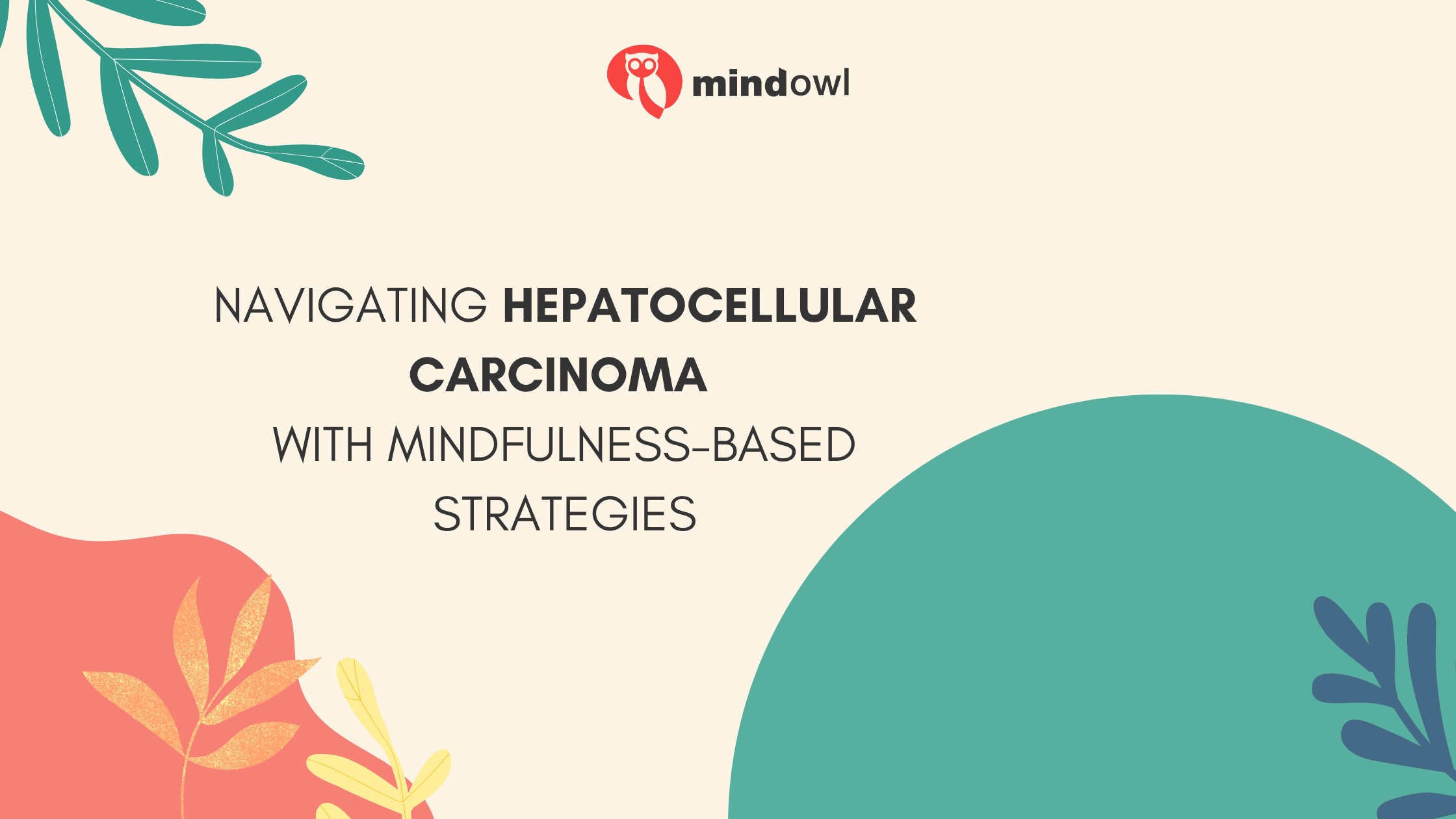Have you ever considered how our mind and body connect, especially when facing health challenges? Hepatocellular carcinoma (HCC) is one such challenge that affects many lives around the globe. It’s a type of liver cancer that can be daunting not only physically but also mentally. So, how do we face it head-on with not just medical treatments but with our mental strength? Let’s explore how mindfulness-based strategies can be a beacon of hope for those navigating through hepatocellular carcinoma.

Understanding Hepatocellular Carcinoma
Hepatocellular carcinoma is the most common type of liver cancer, usually affecting people with chronic liver diseases like hepatitis or cirrhosis. Detecting it early and choosing the right treatment plan is crucial for better outcomes. Among the various treatment options, combination therapy for hepatocellular carcinoma has shown promise. This approach combines different treatments to target cancer more effectively. But, treatment is just one part of the journey. How do patients cope with the mental stress that comes with this diagnosis?
The Role of Mindfulness in Cancer Care
Mindfulness involves being fully present and engaged in the moment, aware of your thoughts and feelings without judgment. For cancer patients, mindfulness practices can help reduce stress, anxiety, and depression, improving their quality of life. But what specific strategies can be employed, and how do they fit into the broader care regimen for HCC?
Incorporating Mindfulness into Daily Life
Integrating simple mindfulness practices into daily routines can benefit individuals battling hepatocellular carcinoma (HCC). Techniques such as mindful breathing help focus on the present moment, while meditation encourages a state of calm and balance. Conversely, yoga combines physical movement with breath control and meditation, aiding in stress reduction and emotional well-being. These practices assist patients in maintaining a sense of grounding amidst the chaos of diagnosis and treatment, enhancing their ability to cope with the journey ahead.
Mindful Eating for Liver Health
Mindful eating is a practice that emphasizes awareness of the eating experience, focusing on how food affects the body and recognizing the signs of hunger and satiety. For HCC patients, this approach encourages making nutritional choices that support liver health and overall wellness. By eating slowly and without distraction, individuals can enjoy their food more and develop eating habits that are in harmony with their body’s needs, potentially aiding in their treatment and recovery process.
Stress Management Techniques
Stress can negatively impact health, especially for those dealing with HCC. Mindfulness-Based Stress Reduction (MBSR) programs offer a structured approach to managing stress, incorporating techniques like meditation, body awareness exercises, and yoga. These practices teach patients to respond to stress with awareness and acceptance, rather than reacting automatically. By reducing stress levels, MBSR can help mitigate some of the adverse effects of HCC, improving patients’ overall quality of life.
The Power of Positive Thinking
Adopting a positive mindset is crucial for individuals facing HCC. Positive thinking, supported by mindfulness practices, encourages a hopeful outlook and resilience in the face of fear and uncertainty. This attitude helps patients focus on their strengths and possibilities rather than limitations, fostering a sense of empowerment and the ability to tackle challenges confidently. Cultivating positivity can significantly impact emotional health and the effectiveness of the treatment journey.
Connecting with Nature
Nature has a profound ability to reduce stress and promote mental health. For HCC patients, engaging with the natural world, whether through walks in the park or a garden, is a powerful mindfulness practice. These activities offer a sense of peace and renewal, helping individuals to disconnect from the stressors of their condition and reconnect with the simplicity and beauty of the external environment. The therapeutic effects of nature can be a valuable complement to the medical treatment of HCC.
Building a Supportive Community
The journey through HCC can be isolating, making a supportive community invaluable. Mindfulness-based support groups create a space for sharing experiences and wisdom, offering emotional support and a sense of belonging. Patients can learn from each other in these groups and find solace in knowing they are not alone. The community fosters a positive environment where individuals can grow and heal together, strengthening their resilience and capacity to face the challenges of HCC.
Mindfulness and Medical Treatment: A Harmonious Blend
Integrating mindfulness with medical treatments offers a holistic approach to managing HCC. This synergy addresses the disease’s physical and emotional aspects, enhancing the effectiveness of medical interventions and improving patient outcomes. Mindfulness practices can help manage side effects, reduce stress, and maintain a positive outlook, all of which are crucial for the healing process. By combining these approaches, patients can experience a more comprehensive and supportive care journey marked by greater well-being and resilience.
Conclusion
Navigating hepatocellular carcinoma is undeniably challenging. However, incorporating mindfulness-based strategies into the journey can make a significant difference. These practices help manage the physical symptoms of HCC and provide mental and emotional support, enhancing the quality of life. As we continue to prioritize traffic metrics targeted toward doctors studying HCC, it’s crucial to remember the role of holistic approaches in patient care. Patients can face their diagnosis with strength, resilience, and hope by focusing on the body and mind.
MindOwl Founder – My own struggles in life have led me to this path of understanding the human condition. I graduated with a bachelor’s degree in philosophy before completing a master’s degree in psychology at Regent’s University London. I then completed a postgraduate diploma in philosophical counselling before being trained in ACT (Acceptance and commitment therapy).
I’ve spent the last eight years studying the encounter of meditative practices with modern psychology.

